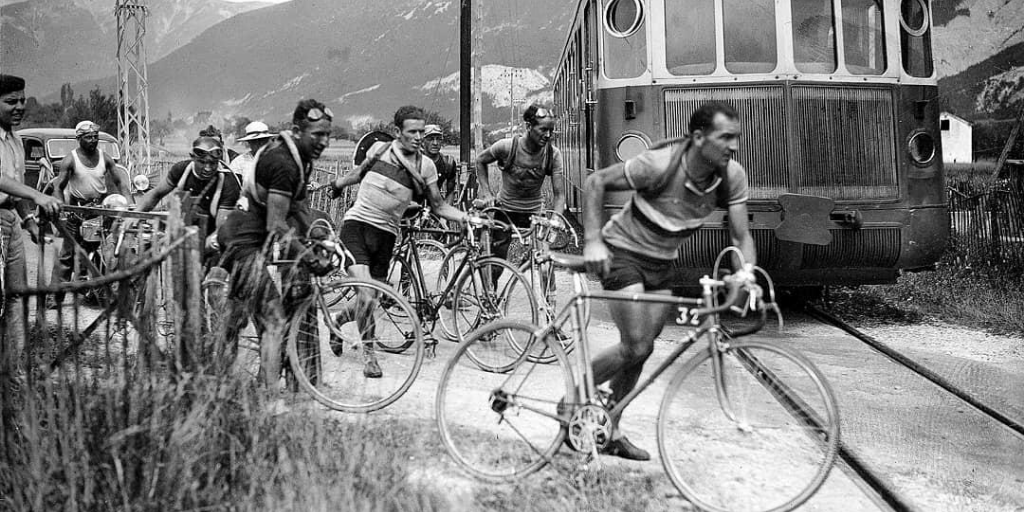The first Tour de France without Henri Desgrange in charge since the creation of the event in 1903 didn't go down well in the history of road cycling at all.
In 1937 Jacques Goddet was full in charge and with him came the first big change: it was the first time when gear change was allowed. Each team had its own car with extra material to help with mechanical problems.
On the other hand, this was the last time riders without a team could attend the race. Nevertheless, these type of riders played an important role in this particular edition.
This was the 31st edition, held between 30 June and 25 July in 1937. The route was 4415 km long, divided into 20 stages (many of them had a and b parts).
PLEASE, SUPPORT PELOTONTALES!
If you like PelotonTales blog and want to help me a little to continue the work on this website, please consider a small donation.
Thank you for your support!
After their absent in 1936 for political reasons, Italian cyclists attended the Tour de France again in 1937. Their team leader was
the new shining star, Gino Bartali, who has already won Giro d’Italia twice (1936 and 1937).
The Belgian team came with the defending champion Sylvére Maes. And finally, after two years of absence, Roger Lapebie was invited to the French team again. He famously had a faud with Desgrange, thus despite his great form in previous seasons, he was left out of the French national team. Also, Julian Berrendero, the best climber of the previous edition was there and Gustaaf Deloor, the winner of the first two editions of Vuelta a Espana (1935 and 1936) attended the race as individual/independent rider.
After winning the 7th stage, Gino Bartali took the yellow jersey, but he wasn't able to enjoy his leading position for long time. On the next day, when his teammate Jules Rossi crashed, he could only avoid hitting the ground with falling into a river. He was able to finish the stage and keep the jersey, but only for one more day. Finally, he abandoned the race in the 12th stage.
Since the 9th stage, Sylvére Maes was leading the general classification ahead of Mario Vicini and Roger Lapebie, who at this point became the undisputable leader of the French team.
And then came the 15th stage.
Before the stage, someone broke off the handlebars on Lapebie’s bike. He could repair it, but it the bike was without water holder. So he had to start the stage with four big mountains (the classic Peyresourde, Aspin, Tourmalet and Aubisque quartet) without water.
He was losing time since the beginning of the stage, but his teammates helped him through the worst phase. On the top of the Tourmalet, Lapebie was 7 minutes behind Maes, but rode downhill furiously and decreased the gap to only 3 minutes.
Within the last 15 km, Lapebie was able to cache his main rival and finished second behind Julian Berrendero. The Frenchman got a 45-sec time bonus but a 90-sec penalty for being pushed by his fans on the ascents, holding on to cars uphill and drafting them downhill.
The Belgians were quite upset due to the fact, that
Lapebie has gained significantly more time by the illegal activities than lost by the penalties.
Nevertheless, Maes was still in yellow, but he had a bad day on the next day. He had a puncture and was helped by Gustaaf Deloor and Adolf Braekeveldt, two individuals, which basically wasn’t allowed, thus Maes got a 15-sec (or 25-sec according to other sources) penalty. This was the stage when Lapebie was allowed to cross the railway before the bars were lowered, but Maes wasn’t.
This was too much for the Belgians, and they left the race before the 17th stage.
At the end, Roger Lapebie won the race that considered to be one of the most scandalous editions in the history of Tour de France.
